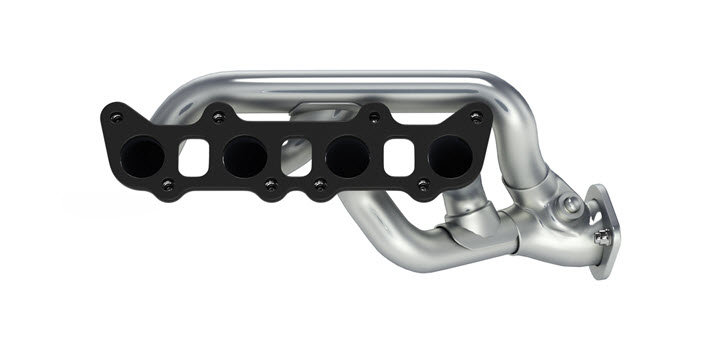-
Call Today:
(972) 418-1800
The exhaust manifold of your BMW is meant to collect the exhaust gases from the engine’s cylinders into one pipe, the collector. They’re known by a collection of names: headers, exhaust manifolds, and tubular manifolds. This component is essential to the proper functioning of your vehicle, as it is directly associated with the engine ignition process. This is where the waste gases are funneled into after fuel has been burned in the engine and later sent to the tailpipe.

Some common signs of exhaust manifold issues in your BMW could be a noisy engine, a burning smell coming from the engine, lower fuel efficiency, problems accelerating, and decreased power.
Issues with your BMW’s exhaust manifold can be indicative of other engine problems or lead to further issues in core engine functions. If you notice any of the following symptoms, call our trusted mechanics at Ultimate Bimmer Service right away.
An exhaust manifold that has either failed or been otherwise compromised can lead to serious issues for your Bimmer and may even render it unsafe to drive. Note that some effects of exhaust manifold problems can become a hazard to you as well, as exposure to exhaust fumes which leak from the manifold can make you sick.
If you are noticing unusual odors coming through the vents of your vehicle, especially when you are not using the heater or A/C, you need to get your vehicle checked immediately. This may be indicative of a crack in the exhaust manifold.
Cracks in the exhaust manifold can be caused by exposure to heat. Over time, it can wear significantly on the material of the exhaust manifold, weakening it and eventually leading to cracks developing. Exhaust manifolds can be made up of cast iron or stainless steel.
If it hasn’t been damaged by heat exposure, the exhaust manifold has probably been damaged due to the brackets or hangers, which hold up the exhaust manifold. When these fail, the weight of the entire exhaust system is left to the exhaust manifold to bear. This component is not meant to bear such weight and will begin to crack and break down under the pressure.
When gases are expelled from the exhaust manifold into the exhaust pipes, they first pass through the muffler before leaving the tailpipe. This is to reduce the sound of the gases exiting the engine. When the exhaust manifold is damaged, perhaps due to a crack or broken seal at the cylinder head, the exhaust gases escape at the crack or seal instead and produce loud hissing and popping sounds. Sputtering noises from the engine may also be indicative of a problem with the exhaust manifold.
Because this symptom can be caused by many things, this one should only be noted as a sign of exhaust manifold issues when observed, along with the previously mentioned signs. The exhaust manifold is unable to properly manage the expulsion of gases from the engine, leaving the engine unprotected from further issues that may arise from an imbalance in pressure in the system.
If you are having difficulty accelerating or noticing hesitation of the vehicle when accelerating, then this may point to a problem with the exhaust manifold. Acceleration problems typically emerge between 2000 to 4000 RPM but are not exclusive to this range.
Problems with your BMW’s exhaust manifold can result in serious complications for your vehicle’s engine and pose a safety hazard to you directly, due to leaking exhaust fumes. Upon observation of any of the above symptoms, contact an expert at Ultimate Bimmer Service immediately.

With over 30 years of experience in repairing and maintaining BMWs, our ASE-certified mechanics at Ultimate Bimmer Service can ensure the optimum performance of your vehicle and your utmost safety in driving.
Our services include tune-ups, brake service, electrical repair, transmission, and engine repair. You can trust that our highly-experienced mechanics will be able to accurately diagnose and solve any issues with your exhaust manifold and more. Our offices are located in both Carrolton and Dallas, TX.